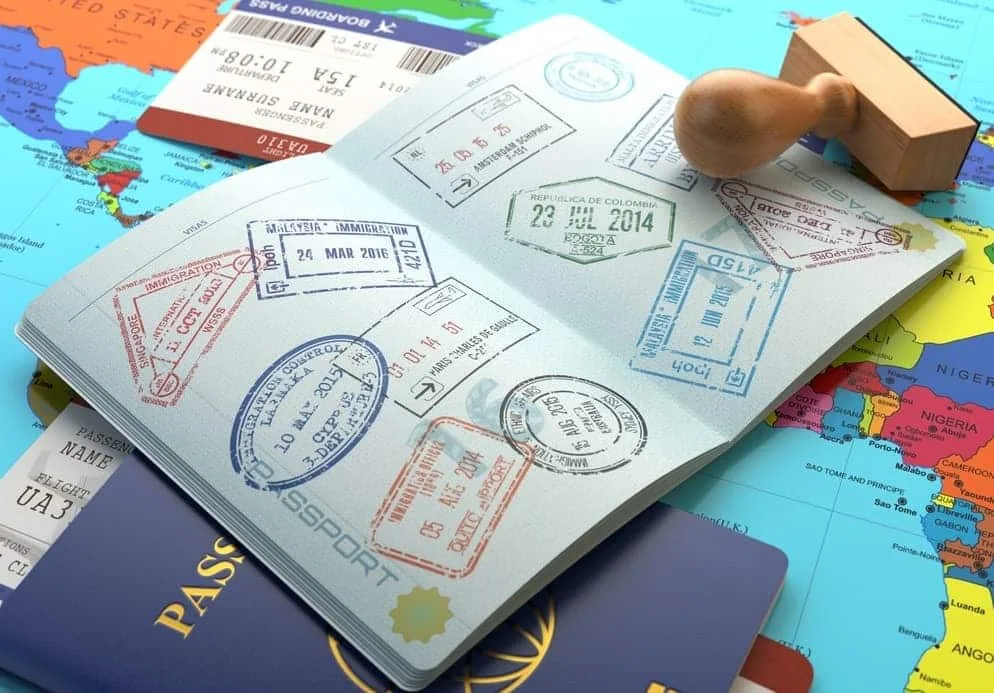When applying for a visa, most people focus on bank statements, invitation letters, and documents but forget one silent, powerful factor: travel history. Whether you’re seeking a tourist, student, or work visa, where you’ve been (or haven’t been) can dramatically affect your chances of approval. Immigration officers often view your visa application travel history as a measure of how likely you are to follow the rules, return home, or pose a risk.
In this article, we’ll uncover how your past travel can either strengthen or sabotage your future visa applications, how to build a solid travel record from scratch, and the key mistakes to avoid especially if you’ve faced a previous visa refusal. If you’ve ever asked, “Does my travel history really matter for my next visa?” this is your guide.
Why Travel History Matters So Much
1. Builds Trust & Credibility
Visa officers view a documented travel history as proof you respect immigration rules. According to travel experts, “A strong travel history can make your application more convincing…as it demonstrates that you’ve traveled responsibly in the past”
2. Reduces Perceived Risk
Countries in data-sharing alliances (e.g., Five Eyes, Schengen VIS) can access your immigration record. Any previous visa refusals future visas or overstays are flagged, increasing scrutiny.
3. Helps First-Time Applicants
Even with strong finances, claiming no travel history visa rejection on your form may raise red flags. Officers may wonder: “Why is this your first international trip?” A few regional trips could have helped Chide.
4. Lowers Interview Pressure
If you can answer confidently about past trips (“Where did you go? Why? For how long?”), you reduce visa officer travel history check stress, major plus.
What Counts as a Positive Travel History?
- Multiple trips to developed, visa-required countries (e.g. Schengen, USA, Canada, UK, Australia)
- No overstays, no immigration violations, no misrepresentations.
- Steady travel pattern, avoid both long gaps and visa hopping.
These patterns are what officers look for, confirming you’re a real, law-abiding traveller.
Negative Travel History/The Red Flags
1. Overstays or Violations
Even one-day overstays can tarnish your immigration record and trigger visa bans.
2. Previous Visa Denials
Any visa refusal can be tracked using visa information systems. A denial in one country (e.g. Schengen) can increase scrutiny in another (e.g. UK)
3. False or Inconsistent Travel History
Filling applications carelessly or misremembering trip dates triggers extra checks. Applicants have stumbled when correcting small errors (e.g., changing Turkey trip from 2013 to 2014)—leading to exceptionally complex review delays
4. Suspicious Travel Patterns
Repeated short vacations, late large deposits, and no clear purpose for travel may lead officers to doubt your intentions.
Positives That Come from Good Travel History
1. Stronger Approval Odds
Holding visas from major countries (like US, Canada, Schengen, UK, Australia) reduces scrutiny for new applications. It gives you an instant credibility boost.
2. Easier Multi-entry Visas
Officers may feel confident granting multi-year visas if you’ve previously complied with visa terms, for example, some had success getting multi-entry Schengen visas based on clean prior visas.
3. Proof of Financial and Social Stability
Frequent travel often implies good finances and strong ties to home, factors that officers value when gauging intent to return.
How to Build or Repair Your Travel History
1. Start with easy destinations: Apply for visa-free or visa-on-arrival countries (like Kenya, Turkey) to build early credibility.
2. Keep track of travel documentation: Maintain copies of old passports, stamped entry/exit, old visas, and itineraries.
3. Plan purposeful trips: Even a short conference or business visit can beat a plain tourist trip—purpose matters.
4. Be accurate with dates & destinations: Check passports, credit card statements, even photo timestamps. Inconsistency can raise suspicion.
5. Address refusals head-on: If you’ve had a visa denied, include a cover letter explaining what happened, how your circumstances changed, and why it won’t repeat.
6. Be honest: Misrepresentation can lead to multi-year bans under agreements like Five Eyes.
What to Do If You’ve Never Traveled
- Don’t lie on applications—declare truthfully.
- Explain solid home ties: employment, property, family.
- Secure an official sponsorship or strong itinerary.
- Start small: Plan a trip to a nearby easy-visa country first, then gradually apply for higher-tier visas.
Final Steps for Real Travel-Ready Applicants
1. Review your passport & travel ledger: list trips, document stamps, visit reasons.
2. Organize proof: passports, tickets, stamps, itineraries, and cover letters.
3. Plan a starter trip: maybe visa-on-arrival destination—book now while it lasts.
4. Explain any refusals or stays transparently, with corrected facts and documentation.
5. Combine travel with purpose: conferences, education, or family visits boost credibility.
Start Building Your Travel Legacy Today
Your travel history visa applications aren’t just background info, they’re tickets to smoother approvals, reduced scrutiny, and recurring multi-entry visas. A single hiccup—falsified dates, an overstay, or a minor visa refusal can ripple across applications globally. An urgent reality many don’t know.
So here’s your final call to action:
- Discover your current travel record.
- Act fast: plan a legitimate, documented trip.
- Secure your spot among credible travelers.
- Contact us today for expert review of your travel history, application prep, and personalized interview coaching.
Don’t wait for your last chance, apply now, build that travel history, and unlock global opportunities with confidence.


No responses yet